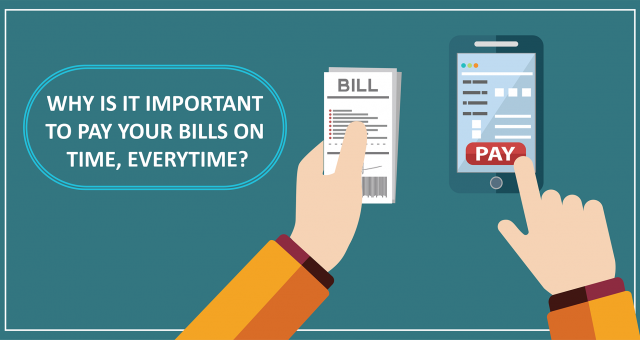A late payment is simply a payment that you have not made to the lender before the due date. This happens to the best of us as we can make mistakes due to oversight or shortage of cash. Unfortunately, these mistakes will negatively affect your credit score and cause it to drop dramatically as your payment history is the key component used to calculate your credit score.
In this article, we will discuss how late payments affect your credit score, the other potential penalties, and tips on how to keep your future credit in tip-top shape.
THE EFFECTS OF LATE PAYMENTS ON YOUR CREDIT SCORE
You know that late payments can negatively affect your credit scores. However, you may not be aware of how much your credit scores can fall or how long it will take you to repair the damage. You should because credit scores can boost or drain one’s finances.
According to Experian, a single 30-day-late payment will lead to the ding of 90-110 points if you have a good credit score of above 780 and a drop of 60-80 points if you have a score of say 680. However, the number of points that your credit score can drop when a late payment is added to your score depends on many factors. The FICO scoring models will consider all the points given below to determine the impact a late payment will have on your credit score.
- It depends on how long you wait before paying the bill. Your payment will be reported after 30 days past the due date and again after 60 days, then 90 days and then again after 150 days. The longer your bill goes unpaid the greater will be the impact on your credit score. And after that, your account will be written off as a loss of charge and that will be very bad news for your credit scores.
- Late payments that have occurred in the past year do more damage than from several years ago. So, your recent credit history severely harms your credit score but this negative impact lessens over time.
- The number of points your credit score can take a ding also depends on the number of late payments on your credit report. If you have many late payments already then you are on the low end so the addition of one more late payment may not cause a lot of damage to your credit score as most of the damage has already been done.
- The amount of your late payment can also play a role as a small amount of say $200 and $300 will not harm your credit score as say a $300 and $3000 late payment. So the more you owe the more your score drops.
OTHER POTENTIAL PENALTIES OF LATE PAYMENT
- You will usually be charged a late fee by the lender and if you continue to miss the due date you can be charged additional late fees too.
- The interest rates of your future loans will increase.
- Your interest rate can be reset to a penalty annual percentage rates (APRS) or default, depending on the creditor’s policy. Credit cards penalty APR can go up to 29.99%
- You can also forfeit your 0% promotional rate on a balance transfer card if you have one and it can be reset to the default interest rates. So, you will pay much more interest on your outstanding balance if this is done.
- It will remain in your credit report for seven years so you may not qualify for a mortgage (at the best interest rates), get a personal or auto loan, or even receive the best credit cards or rewards programs.
HOW TO MASTER YOUR LATE PAYMENTS
You may be just forgetting to pay your bills or struggling to pay your bills, or just forgot to pay one small bill. Either way, there are ways to master your late payments.
- You should select a payment due date that coincides with your paydays or a time when you pay all your bills together. Many credit card issuers do allow you to select a due date.
- Set up bill payment email reminders or text alerts that will remind you about the bills that are due in a few days. If you require more than one alert you can set up multiple electronic prompts.
- Consider setting up automatic payments, especially if you have made late payments in the past due to forgetfulness or being too busy. However, you should ensure that you have sufficient funds in your account so that you do not get to pay overdraft fees. Once you start paying your bills on time your credit scores will begin to improve over time.
- Even if money is tight you can review your budget. You may be able to find ways to cut back on spending and make it easier to pay your bills on time
- Prioritize which payments you need to pay if you do not have sufficient money to pay all bills. The essential bills like mortgage, rent, and utilities should be paid first. Then pay the bills that have a hefty late fee. Finally you can pay the bills that are about to go into collections.
- Finally, a smart move would be to set up an emergency fund that will help you when you have unexpected expenses.
If you need help to improve your credit scores do contact our financial experts at Zinucreditrepair.com.


